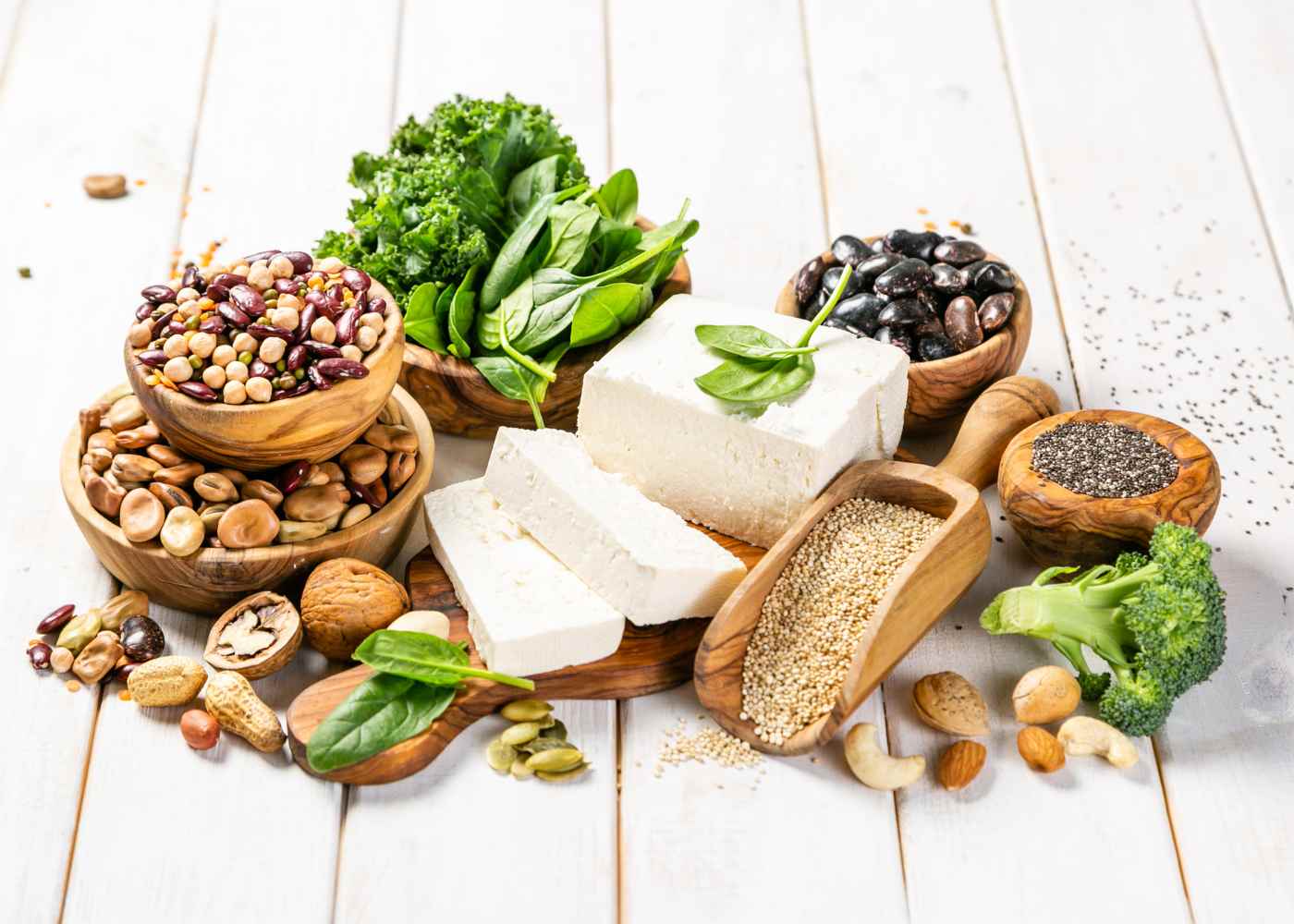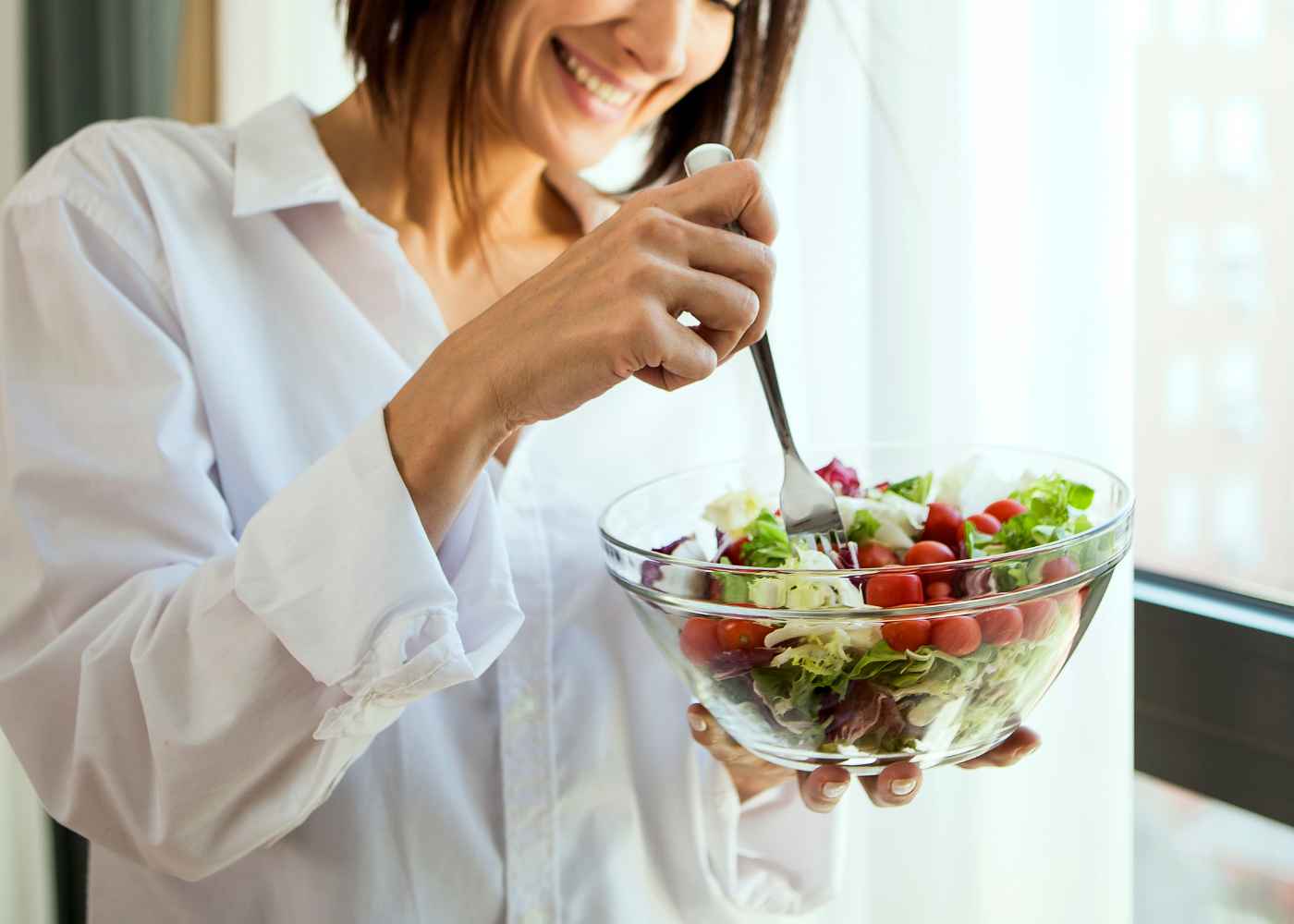
Nutrient-rich foods are those packed with vitamins, minerals, fiber and other essential nutrients. Eating a variety of nutrient-rich foods on a regular basis can provide numerous health benefits such as improved energy levels, better digestive health, stronger bones and muscles, and enhanced immune system function. By eating these types of foods regularly, you can ensure that your body is getting the essential nutrients it needs to stay healthy and energized.

Leafy Green Vegetables
Leafy green vegetables are incredibly nutritious, and packed
with vitamins, minerals, antioxidants and dietary fiber. Eating leafy greens
can provide numerous health benefits such as improved energy levels, better
digestion and stronger bones and muscles. Leafy greens are also known to help
reduce the risk of chronic diseases like heart disease and type 2 diabetes.
The most common types of leafy green vegetables include
kale, spinach, Swiss chard, romaine lettuce and collard greens. These
nutrient-dense foods contain a variety of essential nutrients that can boost
your energy levels when eaten regularly. Kale is one of the most popular leafy
greens due to its high vitamin A content which helps promote healthy vision; it
also contains iron for increased oxygenation in cells throughout the body which
provides an extra burst of energy! Spinach is another great option as it™s rich
in magnesium which helps maintain normal blood pressure levels while providing
a steady release of energy throughout the day. Swiss chard is also full of
vitamins A & C along with other essential minerals like potassium; this
combination keeps our bodies energized all day long. Finally, romaine lettuce
has plenty of folate & magnesium for cell metabolism while collards provide
calcium for strong bones & teeth plus vitamin B6 for brain function &
alertness.
It™s easy to incorporate these superfoods into your diet on a regular basis; you can start by adding salads topped with kale or spinach leaves to lunch or dinner meals several times per week or even replace breakfast cereal/oatmeal with steamed collards or Swiss chard cooked in olive oil for added flavor! You could also make smoothies using any combination of these vegetables accompanied by fruits such as berries or bananas - they taste delicious too! Adding one cup each day ensures that you're getting the necessary amount from all five different types without overdoing it on any particular type (which could lead to deficiencies).

Beans and Legumes
Beans and legumes are an essential part of any balanced
diet. Not only are they low in calories but also packed with nutrients that
provide a host of health benefits. Beans and legumes contain high levels of
protein, fiber, B vitamins, iron, magnesium, and potassium as well as other
minerals and antioxidants which can help reduce the risk for heart disease and
type 2 diabetes. Eating beans and legumes regularly has been linked to improved
digestion, better blood sugar control, lower cholesterol levels as well and
increased energy levels due to their slow-release carbohydrates.
When it comes to the types of beans or legumes available on the
market today there is no shortage! Some popular choices include kidney beans,
black beans, chickpeas (garbanzo), lentils (red & green), split peas (green
& yellow) edamame soybeans among many others! Each type contains different
amounts of macro-nutrients so when deciding which ones you want to incorporate
into your diet it™s important to consider what specific nutrient benefits
you™re looking for while still maintaining a balance between them all.
Incorporating more beans or legumes into your daily meals doesn't have to be difficult either; they can easily be added to salads or soups in place of meats like beef or chicken for leaner proteins without sacrificing flavor! You could also make some delicious veggie burgers using mashed-up chickpeas mixed with diced vegetables such onions celery carrots garlic etc¦ Or try adding cooked lentils over a bed of fresh spinach topped with tomatoes feta cheese olives cucumbers red onion slices drizzled with olive oil - this makes a great lunch meal that will keep you powered through the day! Additionally adding hummus made from garbanzo/chickpeas spread onto toast instead of butter is another easy way to get your daily dose without too much effort involved.

Fruits
Fruits are a great source of energy and provide numerous
health benefits. Eating fruits on a regular basis helps to keep your body
fueled, provides essential vitamins & minerals for improved mental clarity,
aids in digestion and can even help reduce the risk of some chronic diseases
like heart disease or type 2 diabetes.
When it comes to picking out the best types of fruit for an
extra boost of energy there are many options available; some popular choices
include apples, oranges, strawberries, blueberries & bananas. Apples
contain high levels of vitamin C which is known to support healthy cell growth
while providing an added burst of energy; they also have dietary fiber which
aids in proper digestion plus compounds called polyphenols that may help
protect against cancer. Oranges are full of antioxidants such as vitamins A & C
along with potassium which can improve blood pressure levels while boosting
overall metabolic rate - this leads to more efficient oxygen absorption by
cells resulting in increased energy! Strawberries offer natural sweetness
without any added sugar plus B vitamins for sustained release throughout the
day making them ideal for pre/post-workout snacks! Blueberries possess powerful
antioxidants that reduce inflammation helping us stay energized longer while
bananas provide plenty of potassium muscle strength coordination giving us one last
kick when we need it most!
Incorporating fresh fruits into your daily meals doesn™t have to be complicated either; you could start by replacing sugary desserts with slices of watermelon or cantaloupe after dinner instead. You might add berries over cereal or oatmeal during breakfast time as well as make delicious smoothies using any combination from all five mentioned above - adding one banana will ensure extra sweetness without having to add additional sweeteners like honey or maple syrup! Additionally snacking on dried apricots dates figs raisins etc¦ is also another easy but effective way to get those necessary nutrients throughout the day.

Nuts and Seeds
Nuts and seeds are a great source of energy, protein, fiber,
healthy fats and essential vitamins & minerals. Eating them regularly can
help reduce the risk for chronic diseases like heart disease or type 2 diabetes
while providing several other health benefits - from aiding in digestion to
improving mental clarity.
When it comes to the types of nuts & seeds available on the
market today there is no shortage! Some popular choices include almonds,
walnuts, cashews as well as sunflower & pumpkin seeds among many others!
Each type contains different amounts of macro-nutrients so when deciding which
ones you want to incorporate into your diet it's important to consider what
specific nutrient benefits you™re looking for while still maintaining a balance
between them all. For example, almonds provide healthy doses of vitamin E plus
calcium & magnesium; these nutrients help strengthen bones increase muscle
mass improve circulation throughout the body - this in turn gives us more
sustained energy levels without taking away too much from our daily activities.
Walnuts are packed with omega-3 fatty acids which can lower bad cholesterol
levels while promoting better brain health; they also contain copper zinc iron
selenium - all necessary minerals needed for improved metabolism giving us one
last boost before heading out the door! Cashews provide plenty of antioxidants such as
polyphenols that fight inflammation helping keep our cells nourished and energized for longer timespan (this helps greatly during work/exercise). Finally, sunflower
& pumpkin seeds offer complete proteins along with B vitamins both of which aid
digestion and absorption of nutrients by the body leading to increased overall performance
throughout the day!
Incorporating more nuts and/or seeds into your daily meals doesn't have to be difficult either; try adding handfuls over salads or soups instead of meats like beef or chicken for leaner proteins without sacrificing flavor! You could also make some delicious trail mix using any combination from above accompanied by dried fruits such apricots dates figs raisins etc¦ This makes the perfect snack after a workout to replenish lost electrolytes and carbohydrates and get going again afterwards.

Whole Grains
Whole grains are an excellent source of energy and provide
numerous health benefits. Eating whole grains on a regular basis helps to keep
your body fueled, provides essential vitamins & minerals for improved
mental clarity, aids in digestion and can even help reduce the risk of some
chronic diseases like heart disease or type 2 diabetes.
When it comes to picking out the best types of whole grain
products for an extra boost of energy there are many options available; some
popular choices include oats, brown rice, quinoa, farro wheat berries among
others! Oats contain high levels of fiber which is known to support healthy
cholesterol levels while providing slow-release carbohydrates for sustained
energy throughout the day - they also have B vitamins important to aid proper
brain functioning plus compounds called avenanthramides that may help protect
against cancer. Brown rice is full of antioxidants such as vitamin B6 along with
phosphorus which can improve bone density while boosting overall metabolic rate
- this leads to more efficient absorption by cells resulting in increased
energy! Quinoa offers complete proteins without any added sugar plus magnesium
muscle strength coordination giving us one last kick when we need it most!
Farro wheat berries possess powerful nutrients that reduce inflammation helping
us stay energized for longer timespan (this helps greatly during work/exercise).
Incorporating more whole grains into your daily meals doesn't have to be difficult either; you could start by replacing white pasta with its wholegrain counterpart after dinner instead. You might add cooked oatmeal over yogurt during breakfast time as well as make delicious grain bowls using any combination from all five mentioned above “ adding nuts seeds dried fruits will ensure extra flavor and texture without having too much effort involved. Additionally snacking on granola bars made from rolled oats mixed sunflower pumpkin seeds raisins etc¦ is also another easy but effective way to get those necessary nutrients throughout the day.

Conclusion
To maintain good health and well-being, it is essential to consume foods that are rich in nutrients. These foods provide the body with energy, vitamins, minerals, proteins, and healthy fats that help us keep going throughout the day. Besides, consuming a variety of fresh fruits, nuts, seeds, and whole grains can help reduce the risk of chronic diseases like heart disease and type 2 diabetes and offer various other health benefits, such as improved digestion and mental clarity.
Incorporating these foods into your diet can be easy and straightforward. You can start by replacing sugary desserts with slices of watermelon or cantaloupe after dinner or adding nuts and seeds to your salads or soups before meals. Additionally, snacking on dried apricots, dates, figs, raisins, etc. throughout the day can provide those necessary nutrients. You can also make delicious smoothies using any combination of these nutrient-dense foods, without having to add sweeteners like honey or maple syrup!
So, instead of reaching for processed snack bars when you're feeling low on energy, try adding nutrient-rich options to your daily meal plan. However, care should be taken to ensure that nutrient-rich foods are consumed carefully, and a balanced approach is maintained. Only when these foods are consumed mutually, and in the right quantities, can you derive maximum benefits. Your body will thank you sincerely!



















